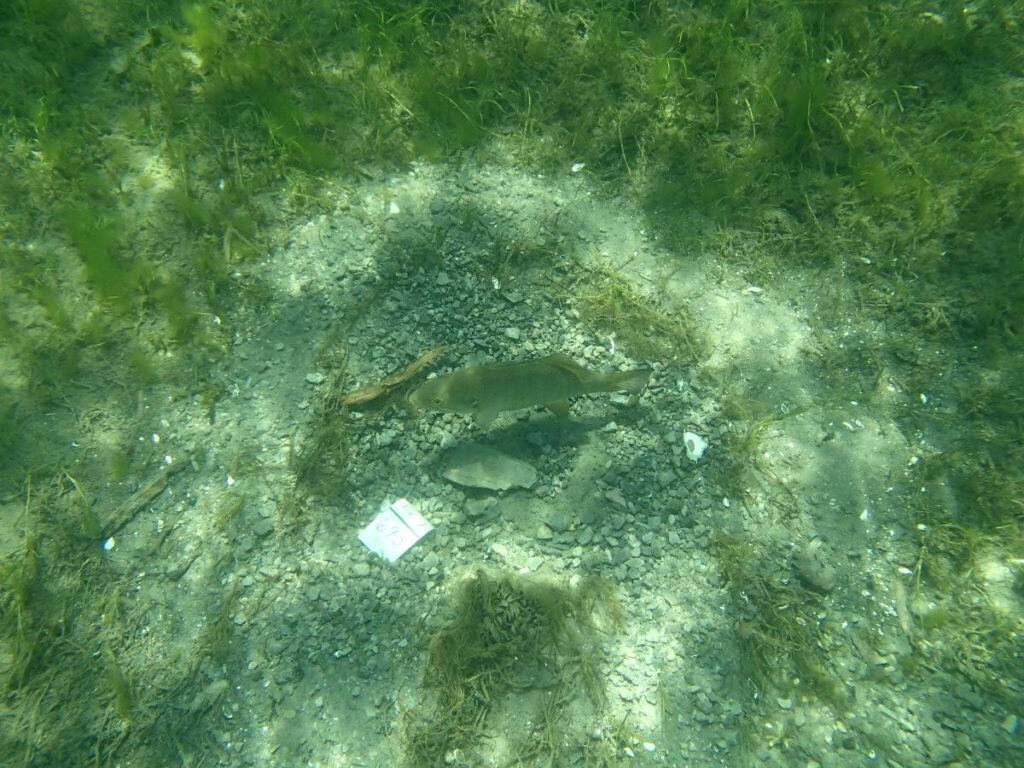CHANTRY — Bass may soon get a reprieve from early angling in the Township of Rideau Lakes. Council has agreed to support a request for a provincial meeting to advance the creation of bass spawning sanctuaries in local lakes.
At the Sept. 2 meeting, council endorsed a recommendation from the Rideau Lakes Lake Association Committee (RLLAC), which met Aug. 6, to authorize Mayor Arie Hoogenboom to seek a delegation with the Ministry of Natural Resources and Forestry (MNRF) regarding bass spawning protection during the 2026 Rural Ontario Municipal Association (ROMA) conference.
Discussion focused on the science behind temporary fish sanctuaries. Hoogenboom explained that bass are vulnerable in spring when anglers targeting other species, like perch or crappie, inadvertently catch nesting bass. Once removed from their nests, predators quickly wipe out the eggs and fingerlings, leading to significant declines in reproduction and recruitment.
Pilot bass spawning sanctuaries on Opinicon and Charleston lakes are already showing promising results. Researchers from Queen’s University and biologist Dr. David P. Philipp have been collecting data in those lakes to support the proposal. The new plan would establish buoy-marked, no-fishing zones to protect bass spawning in additional Rideau Lakes waterways from mid-April until early July.
“These are not permanent closures like the one on Upper Rideau,” Hoogenboom said. “They would be temporary, designed to protect bass during the nesting period.”
Coun. Marcia Maxwell said she had heard presentations at lake association AGMs and thought the program was already in progress. Hoogenboom said that MNRF approval is still required and must include consultation with anglers, landowners, and lobby groups.
“I know the sanctuary on Newboro Lake is permanent and you’re not allowed to go in there at all,” Maxwell said. “These were going to be more temporary or seasonal, with no fishing allowed until a month after the season opens to allow successful spawning.”
Hoogenboom noted that both conservationists and anglers have supported the concept. “If you’re a fisherman, you want there to be fish,” he said.
Coun. Linda Carr said enforcement is a key concern. “You have to tell people not to fish in these fish sanctuaries. That’s your biggest problem. It’s not the fish. I know it is because I’ve seen it,” she said.
Hoogenboom agreed, adding that a formal sanctuary designation would allow for enforcement and fines.
Coun. Sue Dunfield said that a separate resolution has already gone to Parks Canada, requesting that the bass season start two weeks later to better align with the end of the spawning period.
With unanimous support, the township will now press the case directly with the minister at the ROMA conference.
BACKGROUND: Efforts to Protect Bass Spawning in Rideau Lakes
The issue of tournament pressure during bass spawning season has been simmering for several years in Rideau Lakes.
Starting in 2022, I reported for the Smiths Falls Record News on growing friction between cottagers and competitive anglers. Some shoreline residents described run-ins at public docks and raised concerns about environmental impacts. Tournament organizers pushed back, defending their catch-and-release programs and emphasizing the economic benefits of their events.
Those tensions helped build momentum for a science-based solution. With new data from snorkel surveys showing improved reproductive success in temporary sanctuary zones, the township is now taking formal steps to support the program.
Dr. Philipp, a fisheries biologist and chair of the Fisheries Conservation Foundation, has studied bass ecology for more than 40 years. His research shows that male bass guard nests during spawning and are often disturbed or caught by early-season anglers. During pandemic restrictions, when there was less fishing pressure, nest success rates jumped.
Philipp promotes spawning sanctuaries that temporarily restrict fishing in 10 to 20 per cent of key shoreline habitat. Those areas would reopen in early July, after bass have completed their parental care. Pilot projects in Opinicon and Charleston lakes have demonstrated both ecological improvement and community compliance.
Local lake associations say that protecting young bass [through bass spawning sanctuaries] will ultimately benefit anglers and the tourism economy.
Stay up to date—check out our Rideau Lakes coverage.



